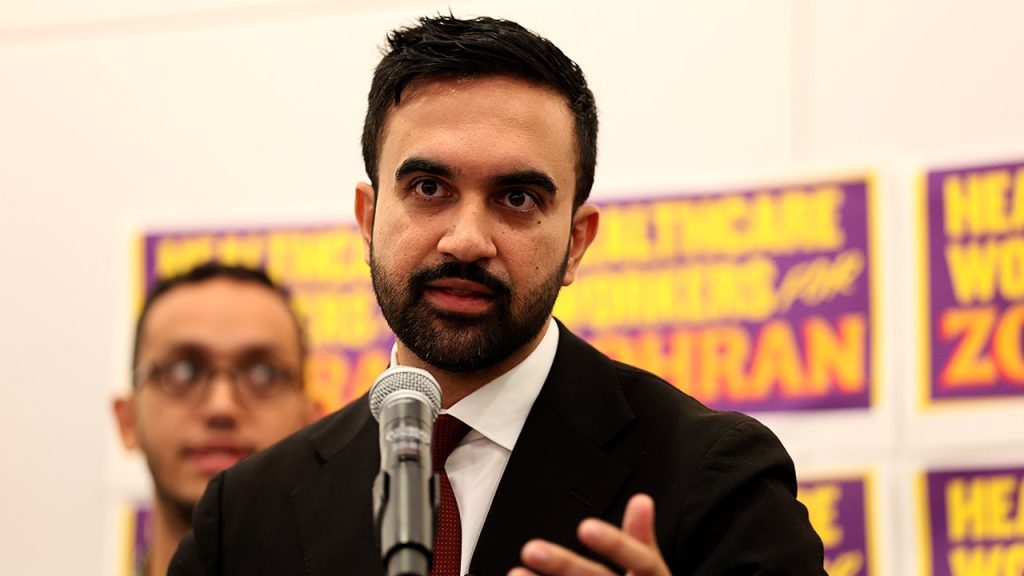Business Leaders Sound Alarm Over Progressive Mayoral Candidate’s Economic Policies
In a city known as the epicenter of global finance, Zohran Mamdani’s primary victory in the New York City mayoral race has sparked intense debate about the future direction of America’s largest metropolis. The progressive candidate’s platform—featuring rent freezes, tax increases on corporations and the wealthy, and city-run grocery stores—has drawn sharp criticism from business leaders who fear his policies could trigger an exodus of businesses and capital from the city. Michael Toth, a research fellow at the University of Texas at Austin’s Civitas Institute, has become one of the most vocal critics of Mamdani’s economic vision, arguing that such policies fundamentally misunderstand the market forces that built New York into a global powerhouse. “We have a far-left socialist mayor who’s trying to take control of the epicenter of global finance,” Toth explained in an interview with Fox News Digital. “It’s like oil and water.” His concerns echo those of prominent business figures like Gristedes CEO John Catsimatidis, who has publicly expressed alarm about Mamdani’s proposals to raise taxes on the top 1% and establish government-run grocery stores.
The heart of the debate centers on affordability and economic opportunity—themes that have resonated with many voters frustrated by New York’s high cost of living. Mamdani has built his campaign around promises of fast, free buses, free childcare, and more affordable housing, presenting himself as a champion of grassroots energy against establishment politicians. His campaign has proudly announced mobilizing tens of thousands of volunteers who have knocked on more than 230,000 doors, suggesting his message is finding an audience among New Yorkers struggling with the city’s notoriously high living costs. Campaign spokesperson Dora Pekec frames the race as a challenge to “billionaires and the politicians who do their bidding” who have “made New York City unaffordable for too many New Yorkers.” This populist framing has helped Mamdani establish a significant lead in recent polls, with a Suffolk University CityView poll showing 45% of New Yorkers very or somewhat likely to vote for him—giving him a 20-point advantage over his closest competitor, former Governor Andrew Cuomo.
Critics like Toth, however, argue that Mamdani’s progressive policies represent a fundamental misunderstanding of economic principles that would ultimately harm the very people they aim to help. “He completely shortchanges how hard it is for businesses to stay afloat and to consistently bring products to their customers,” Toth explained, emphasizing that “more supply is better for consumers” while “more government mandates is worse for consumers because it drives prices up.” This perspective reflects broader concerns within the business community that rent controls and higher taxes would discourage investment and development in the city, potentially worsening housing shortages and affordability issues in the long run. When asked directly about his economic philosophy, Mamdani has been transparent about his views, telling CNN’s Erin Burnett that he has “many critiques of capitalism”—a stance that has only intensified concerns among business leaders about the future economic climate under his leadership.
The implications of New York City’s mayoral election extend far beyond the five boroughs, according to Toth, who suggests the race could accelerate “a continued reorientation of the American capital markets to places like Dallas and Florida.” This concern about capital flight reflects the reality that in today’s mobile economy, businesses and wealthy individuals have options when faced with unfavorable tax and regulatory environments. Several real estate moguls have already signaled support for incumbent Mayor Eric Adams, while former Governor Cuomo has been rallying business leaders as pressure mounts to consolidate opposition against Mamdani. The election has thus become a referendum not just on local policies but on competing visions of urban governance in the post-pandemic era, with national implications for how cities balance social welfare with economic growth.
For his part, Mamdani has attempted to reassure business owners that his administration would work collaboratively with them despite his progressive agenda. When confronted with criticism from grocery store owners concerned about his plan to open five city-run grocery stores, Mamdani told Fox News Digital that he envisions a “partnership” between the city and existing grocery stores and bodegas. “I am interested in working with each and every New Yorker, and I’ve actually spoken with a number of grocery store owners and made clear to them that I both recognize, and I appreciate the work that they have done. The fact is that they are a critical part of our communities,” Mamdani stated. These reassurances, however, have done little to alleviate the concerns of business leaders who see his fundamental economic philosophy as incompatible with New York’s position as a global business hub.
As November approaches, the mayoral race has evolved into a high-stakes battle over New York City’s economic future. While Mamdani’s supporters see his candidacy as an opportunity to address longstanding inequalities and make the city more livable for working-class residents, his critics warn that implementing his agenda could “set the city back decades” by driving away the businesses and capital that fuel its economy. The outcome will likely depend on whether voters prioritize immediate affordability measures and expanded public services, or concerns about long-term economic viability in an increasingly competitive global landscape. Regardless of the election result, the passionate debate surrounding Mamdani’s candidacy highlights the tensions that cities across America face as they navigate post-pandemic recovery, housing affordability crises, and growing calls for economic justice in an era of heightened inequality.


